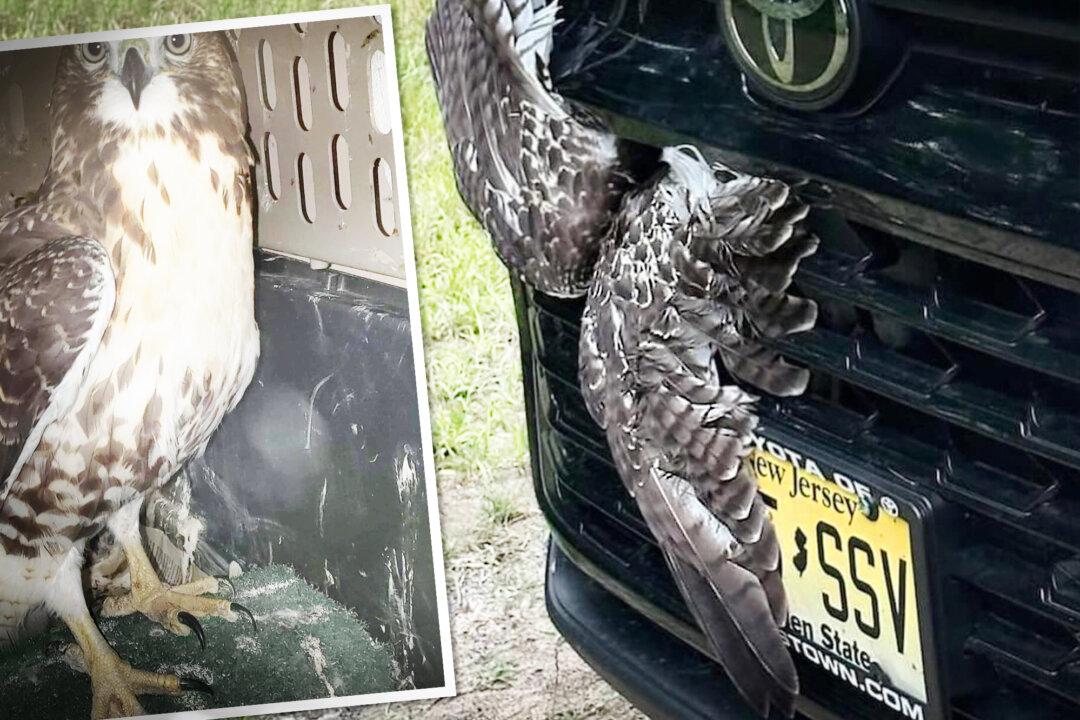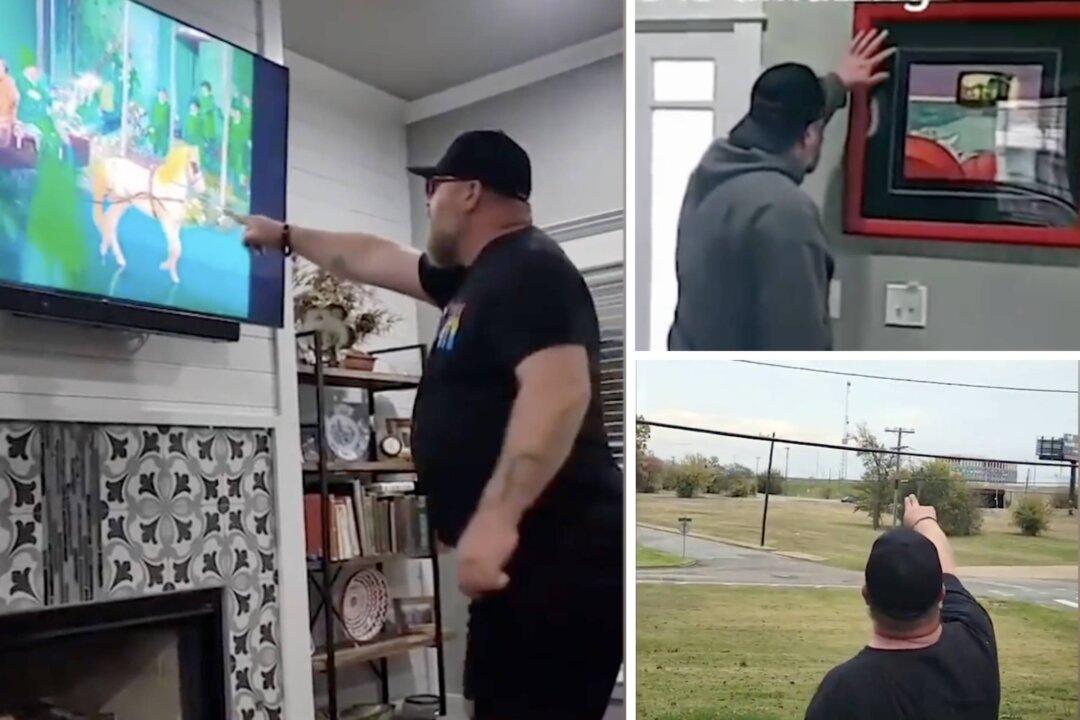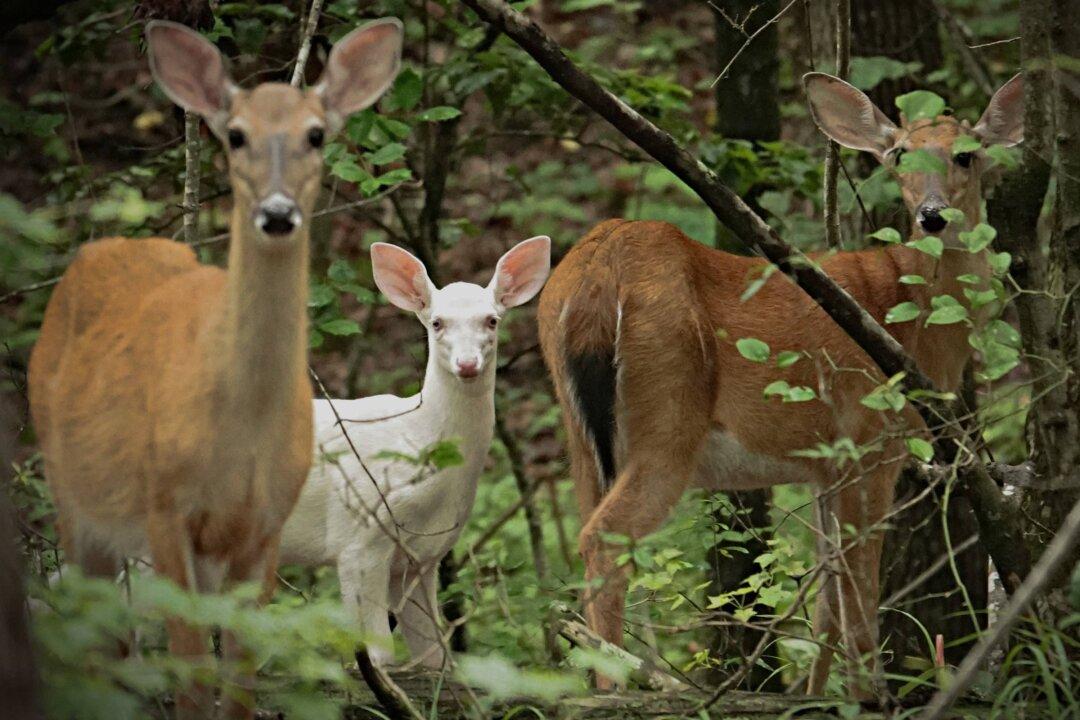A New York motorist collected an unexpected hitchhiker last summer—she had more ruffled feathers than most and appeared suddenly from out of nowhere.
On July 12, a Toyota vehicle en route to Saratoga swiped a predatory bird in flight near Kingston, New York. The driver apparently was unaware of what had happened at first. But they probably realized something was wrong, pulled over at a rest stop, and got out to take a look, says Cara Huffman, co-founder of North Country Wild Care.






